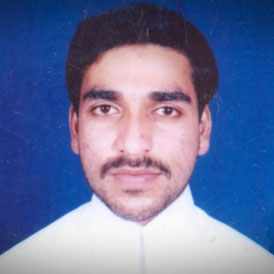Family thought man held in Afghanistan was dead
The cousin of a Pakistani man held at Bagram airbase in Afghanistan since 2004 tells Channel 4 News his family feared he was dead until two years ago.

Yunus Rahmatullah was captured by British troops in Iraq in 2004 and handed over to US forces. He was taken to Bagram, and since then has been in custody but never tried.
Speaking to Channel 4 News from Lahore, Munir Ahmed said his family had no contact with him for six years. Asked if family members assumed he was dead, Mr Ahmed said: “Yes, because we didn’t know where he was was and what happened to him …. there wasn’t any communication with him in Bagram.”
That changed two years ago when Mr Rahmatullah was allowed to make contact with them via the Red Cross in Pakistan.
Jihad
Mr Rahmatullah’s lawyers say he denies ever belonging to a terrorist organisation, but admits he was in Iraq for jihad (holy war). But Mr Ahmed said: “He told us he was captured there doing business for property.”
We hope it will be a big day and we are waiting for tomorrow. Munir Ahmed
On 14 December, the appeal court in London ruled that the 29-year-old’s detention was unawful and he should be freed. The British government has been ordered to release him by Wednesday or explain why this is not possible.
Mr Ahmed said: “We thought he would become free this week and tomorrow is the last day for this decision and we don’t know what will happen. We hope it will be a big day and we are waiting for tomorrow.”
Court battle
Government lawyers had argued that Mr Rahmatullah was being held by US troops and British ministers had no control over him.
The human rights organistation, Reprieve, had asked the court to grant “habeas corpus” relief. Habeas corpus – Latin for “you may have the body” – is a procedure requiring a court to examine the legality of a detention.
At the time, government officials said ministers at the Foreign Office and Ministry of Defence were considering their next move.
In July, Reprieve tried and failed to persuade the high court to come to Mr Rahmatullah’s aid. The court said he was “in the hands of the Americans” and it was “impossible” to say that British ministers were in a position to “direct (his) delivery”.
But the three appeal judges disagreed and overturned the high court ruling. Reprieve said it was “a unique case …. the first time any civilian legal system has penetrated Bagram, a legal black hole”.
-
Latest news
-
Windrush scandal: returning to the UK after a forty year wait6m

-
Netanyahu ‘survival’ depends on ‘expanding war’ says head of Palestinian National Initiative5m

-
Proposed law change could strip parental rights from paedophiles5m

-
Hugh Grant settles privacy lawsuit against The Sun newspaper publisher2m

-
Post Office Scandal: what did top executive know?6m

-




